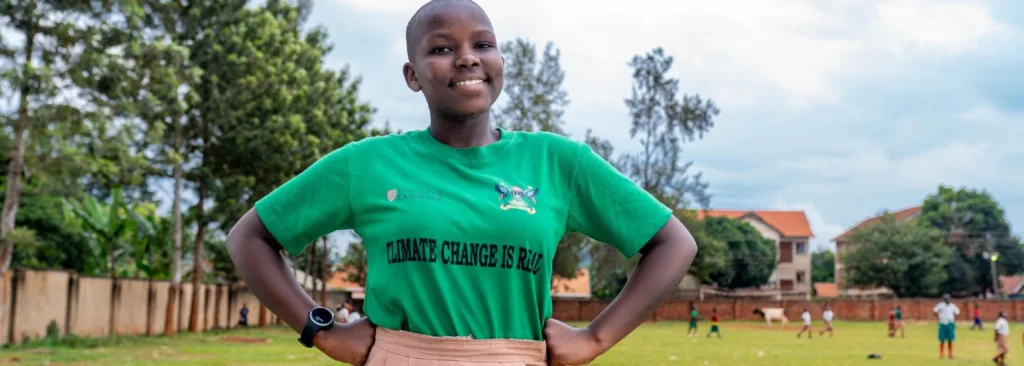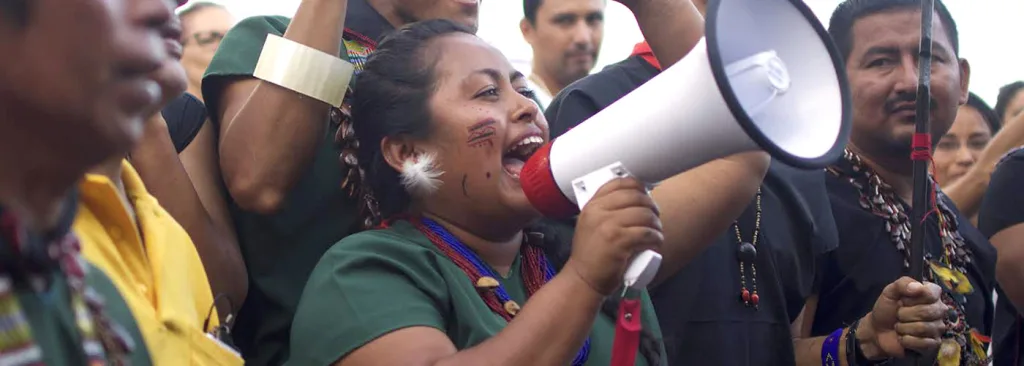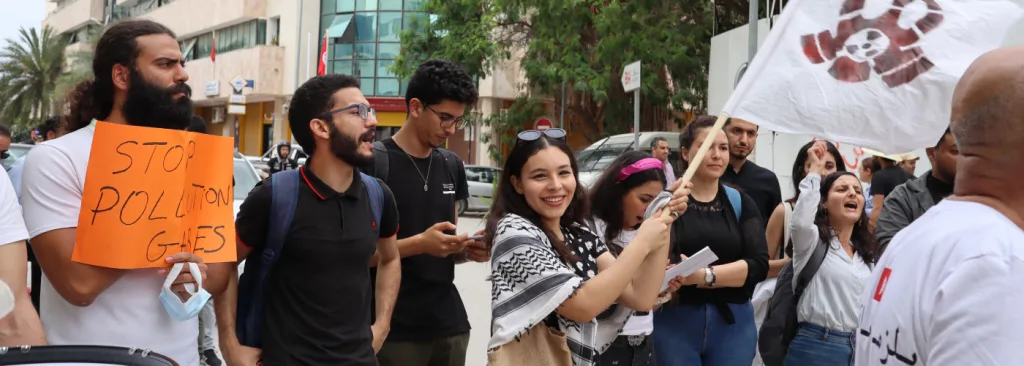Women fighting climate change
Did you know that climate change hits women harder than men? Women in the Global South in particular are feeling its far-reaching consequences. In Kenya, for example, where it is so hot and dry in some places that women have to walk up to five hours to find clean drinking water and food. Or in Brazil, where more and more people are losing their homes because of heavier flooding in the Amazon.
The fact that so many women are feeling the consequences of the climate crisis is unacceptable. And they’re not even involved in making climate policy.
It’s time for women to be listened to. That’s why we support women activists taking the lead in the push to bring about change. Like Eduarda, who brings women together in Brazil to fight for inclusive solutions. Or Anjella, who together with other women, lobbies the Kenyan government about the devastating consequences of the climate crisis.
Hivos ensures that these women have a say in decisions that affect them. We provide a strong network and financing for their initiatives and give them a platform to spread their message. By making a donation, you can help them continue their important mission – which is urgently needed. It’s the people already directly impacted by the crisis who best know what it takes to tackle it.
We must not stop or give up hope. A just and livable world is possible if we act now. Your support is needed. Are you in?
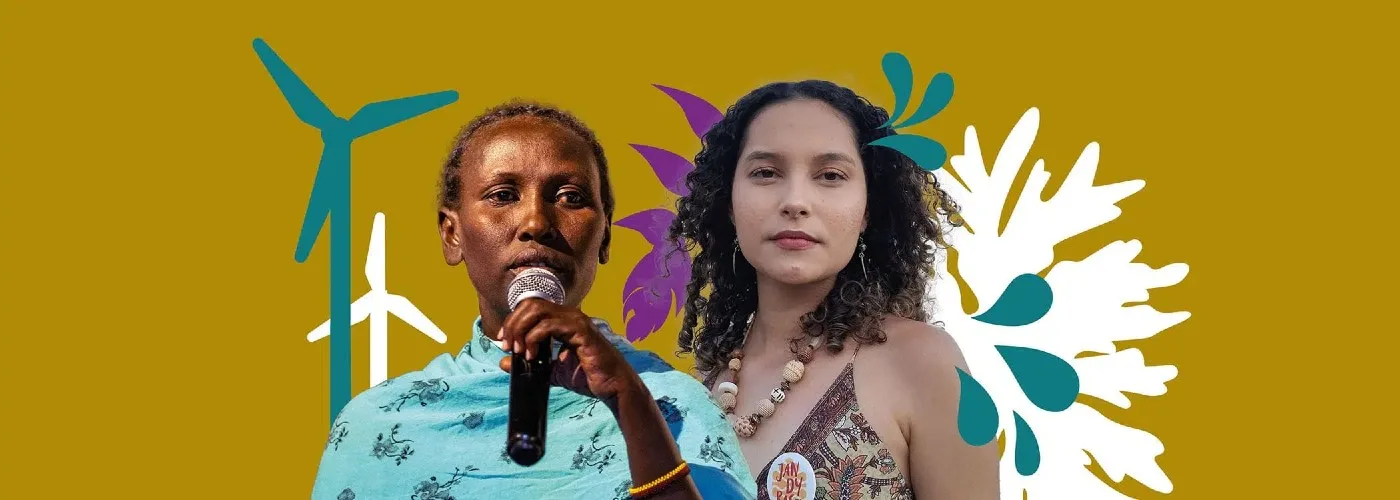
How we provide support
Hivos supports courageous activists, women’s movements, young people and local initiatives working towards a just and livable world.
- We bring them together to share knowledge and join forces. This is how we build a strong global network.
- We ensure that they are visible, for example by having them speak at important climate meetings.
- We train them in lobbying and campaigning so that they can put pressure on politicians, policy makers and other decision makers.
- We finance local solutions to combat the impacts of the climate crisis.
Eduarda in Brazil
The Amazon rainforest is in danger. Besides the ongoing threat of deforestation, the world’s largest rainforest is struggling with heavy rainfall caused by climate change. This has major consequences for the people who live there.
“We live under extreme conditions. Floods cause enormous damage and endanger our food supplies. This leads to stress and even psychological problems,” says Eduarda Gonçalvas. She is involved as an activist in the Jandyras women’s network.
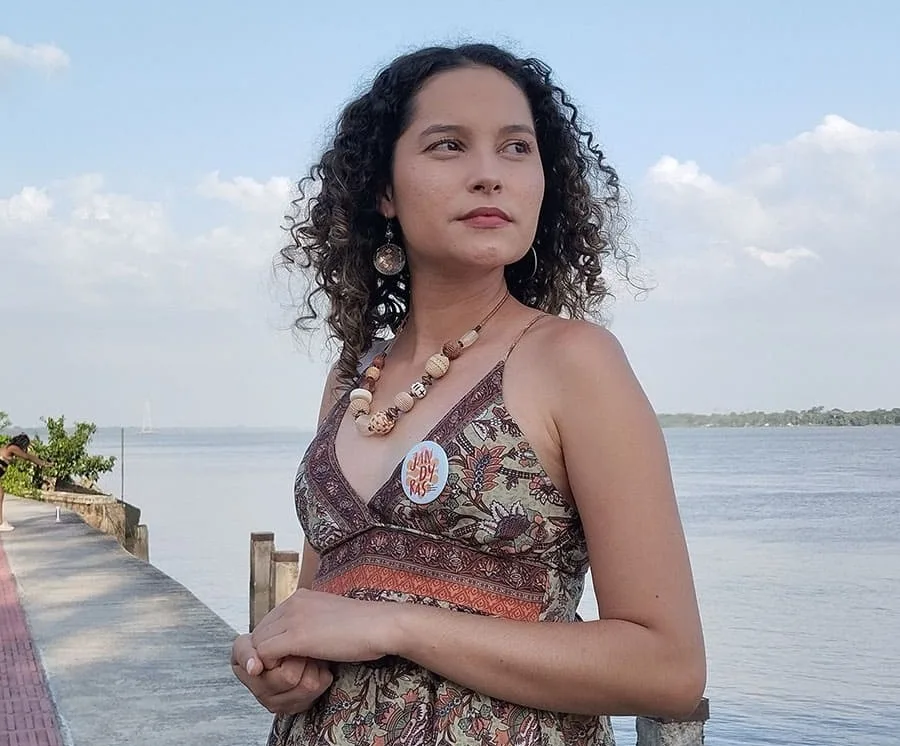
“Authorities see activism as a threat, but we just want to work together to get things done.”
“The harsh daily reality mainly affects women. They mostly stay at home in their remote areas to care for the children. There are also relatively many single women living in low-lying areas. They are all more vulnerable to flooding. Unfortunately, this group has the fewest opportunities to make their voices heard.”
With the support of Hivos, the Jandyras women’s network is committed to changing this. “We are building a climate forum where Indigenous women can come together and learn to speak out about the impacts of climate change. And during the elections we published an election guide to inform communities about what’s going on in politics.”
Their efforts are paying off. “Thanks to Hivos, Jandyras has become a focal point for climate justice in the Amazon, and we are present at important policy conversations. Our work is recognized. The goal now is to get women to the negotiating table at international climate meetings.”
Anjella in Kenya
Several Indigenous communities live around salty Lake Turkana in Northern Kenya. The construction of Africa’s largest wind farm there has brutally disrupted their lives and driven people off their land. The wind turbines supply more than ten percent of Kenya’s electricity, but those who had to make way for it don’t get any.
In addition, the area is experiencing extreme drought, which leads to tension and conflict. “The communities are arguing over scarce water and pasture for their livestock. The result is cattle theft and violence,” says Anjella Lanipir.
“Climate change mainly affects women. We need to be involved in solutions.”
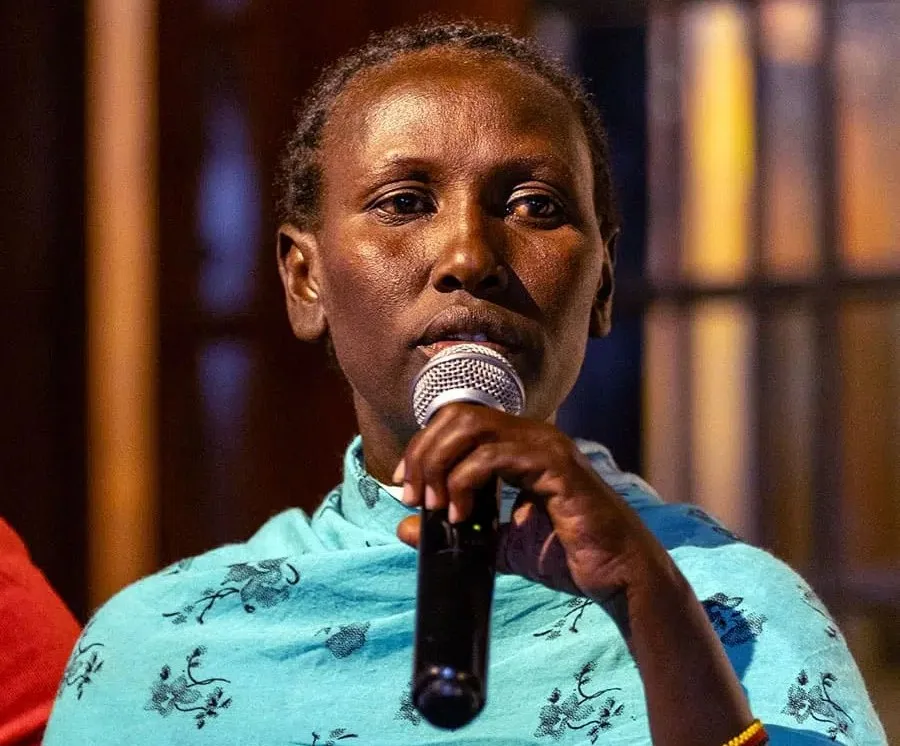
Anjella is part of the Wong’on women’s initiative. They work to involve Indigenous women and girls in climate policy. They also run public awareness campaigns about the climate crisis and try to enter into discussions with the Kenyan government about its impacts.
Thanks to Hivos, Anjella was able to address policymakers during the largest climate summit in Africa and draw the attention of national and international media to the urgency of the climate crisis.
“With the support of Hivos, we can reach a larger audience. But we have to keep fighting. There are so many places where crops no longer grow, just like ours. Our future hangs in the balance.”





